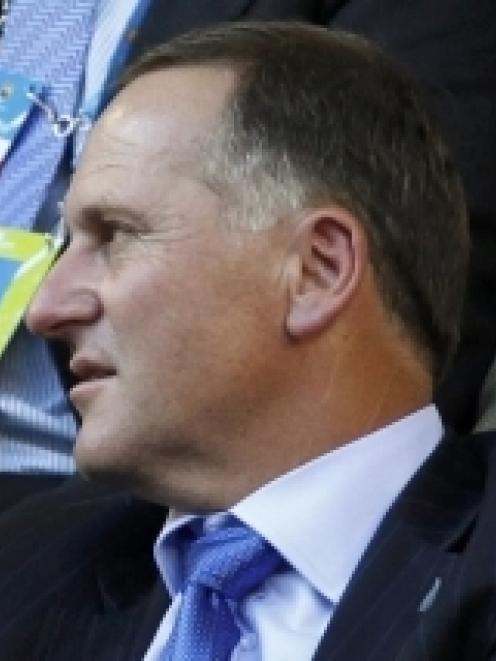
But Labour leader David Shearer had a message for Mr Key last night: if he is serious about negotiating on the GCSB bill "it would be a good idea to pick up the phone".
Mr Shearer was annoyed that Mr Key has started talking publicly about areas of possible compromise on the bill without talking to him first.
Labour's position has been to oppose the bill until a review of intelligence agencies is held.
Mr Shearer is also concerned that neither the Police, the SIS nor Defence have told the Intelligence and Security Committee why it is important for them the bill be passed quickly.
The specialist surveillance it has given to those agencies under highly dubious legal authority has been suspended until the law is passed sanctioning it.
Mr Key, when asked at his post-Cabinet press conference if he would consider legislating for an inquiry in a year or 18 months, said: "That's not impossible. If you look at other jurisdictions, Australia being one, they have formal reviews of their intelligence agencies written into legislation and that's a possibility."
He said he was prepared to accept that the Inspector-General of Intelligence and Security, the GCSB's oversight officer, should have a panel of two independent qualified people that he could use as a sounding board.
Mr Key credited United Future leader Peter Dunne with the idea, although it was first promoted by New Zealand First leader Winston Peters.
Getting Mr Dunne's support would get the bill across the line with a one-vote majority.
Mr Key still has not secured Mr Dunne's support. Officials would be sorting through the submissions and talks with him and potentially other parties would continue.
"All of that will look to make some changes to the bill that may be attractive to other political parties."
However, if he could not get the agreement of other parties, he would still want to pass the bill by a majority of one. "If we have to get there by one, we get there by one."
Mr Shearer sat on the Intelligence and Security Committee with Mr Key last week listening to submissions mainly criticising a bill that expands the agency's legal powers to spy on New Zealanders.
The Government Communications Security Bureau and Related Legislation Amendment Bill will be reported back to the House by July 26.
Mr Key said it was clear from the GCSB's review undertaken by Rebecca Kitteridge that there was a risk that people who worked in and around the intelligence community became isolated from other relevant parts of the state sector, the legal fraternity and the likes.
That is a reference to the GCSB continuing to provide surveillance of New Zealanders for other state agencies without the explicit legal authority to do so and when several legal judgments, including the Supreme Court case on the Urewera Four, reinforced the view that explicit authority is required before the state engages in intrusive actions of search or surveillance.
Mr Key yesterday also commented on a major area of contention with submitters - whether the GCSB can lawfully collect metadata, or information about communication.
He said he believed the current law allowed the GCSB to collect metadata in its foreign intelligence role and also in assisting other agencies - "under warranted authority by virtue of agency support".
"That will also be true under the proposed legislation."
- Audrey Young of the New Zealand Herald












